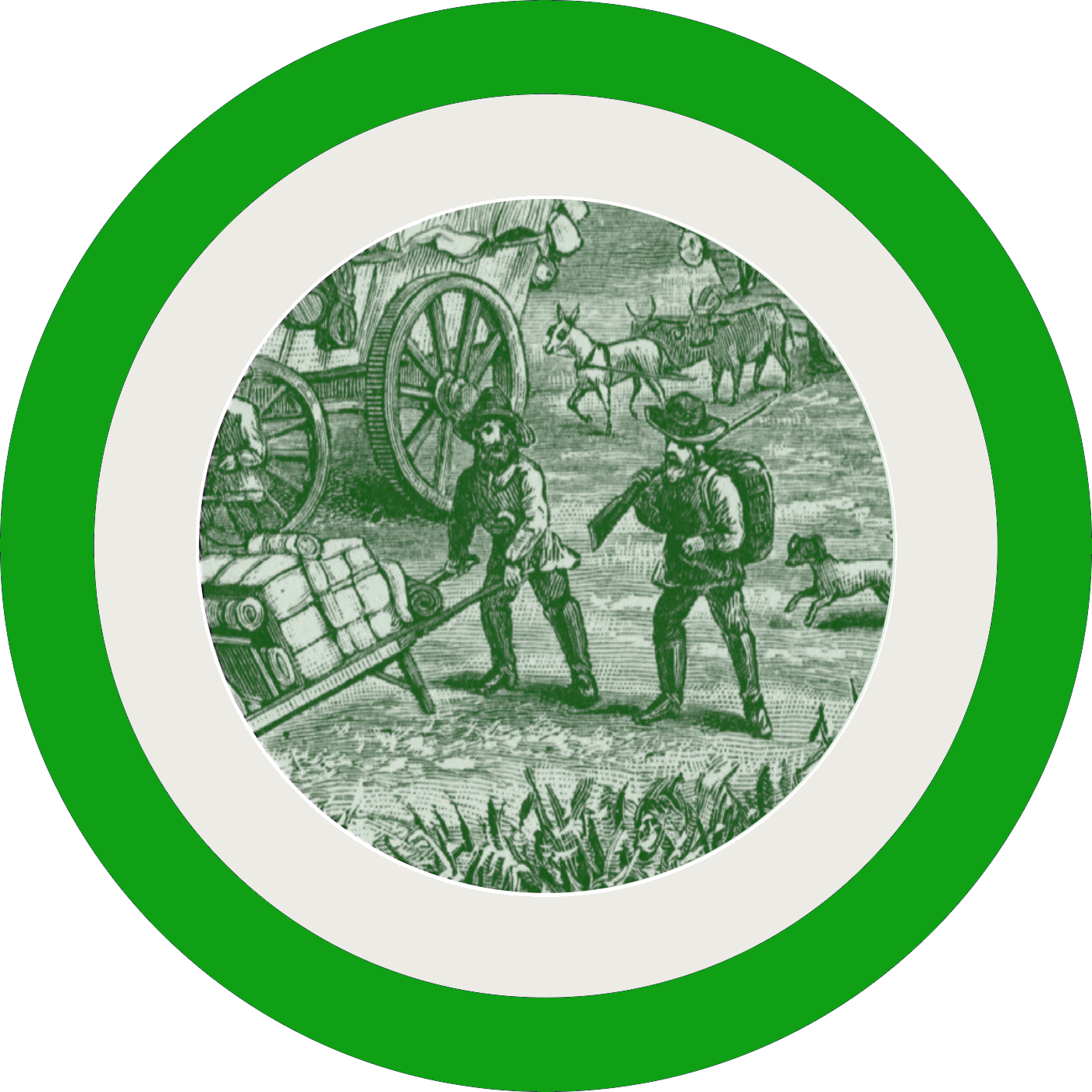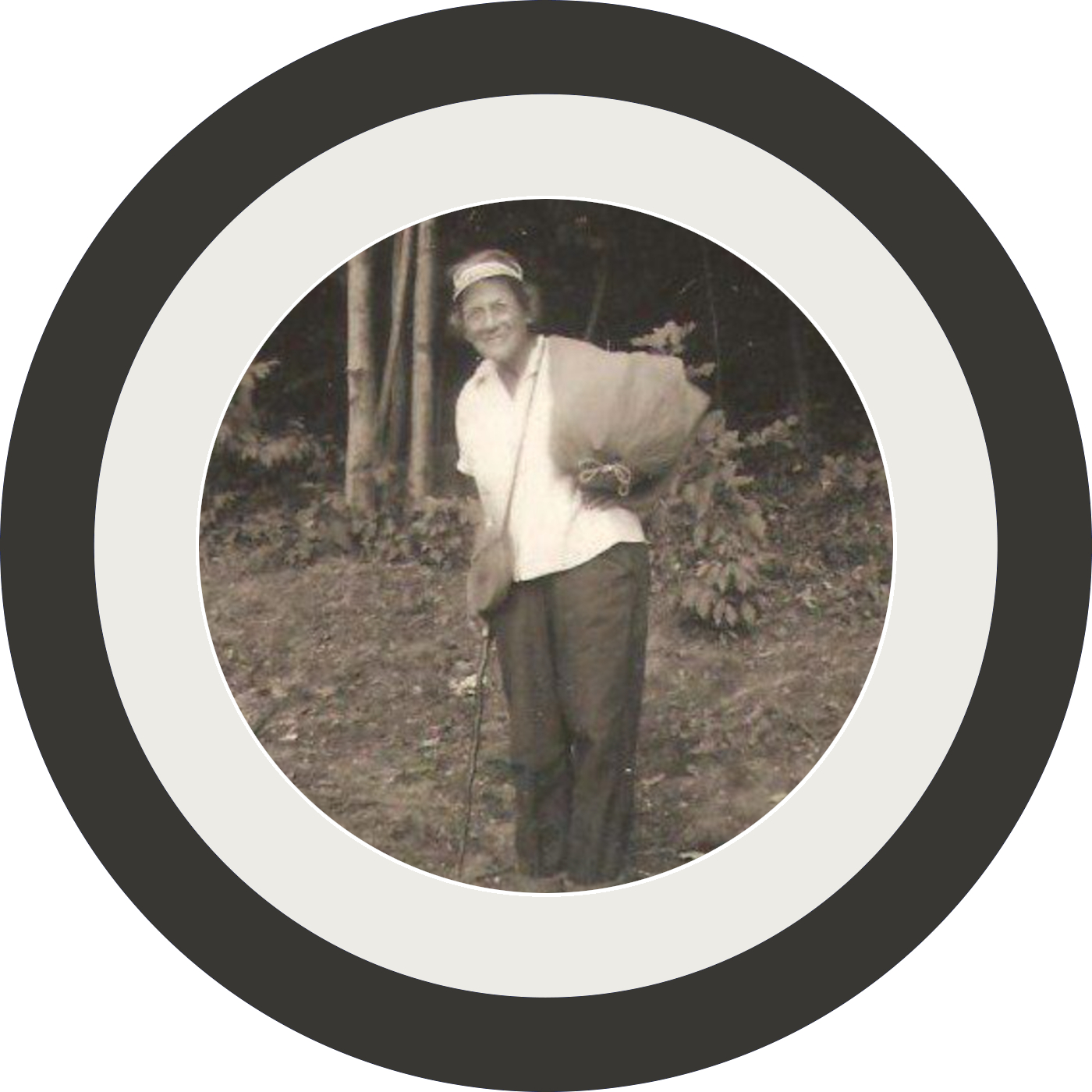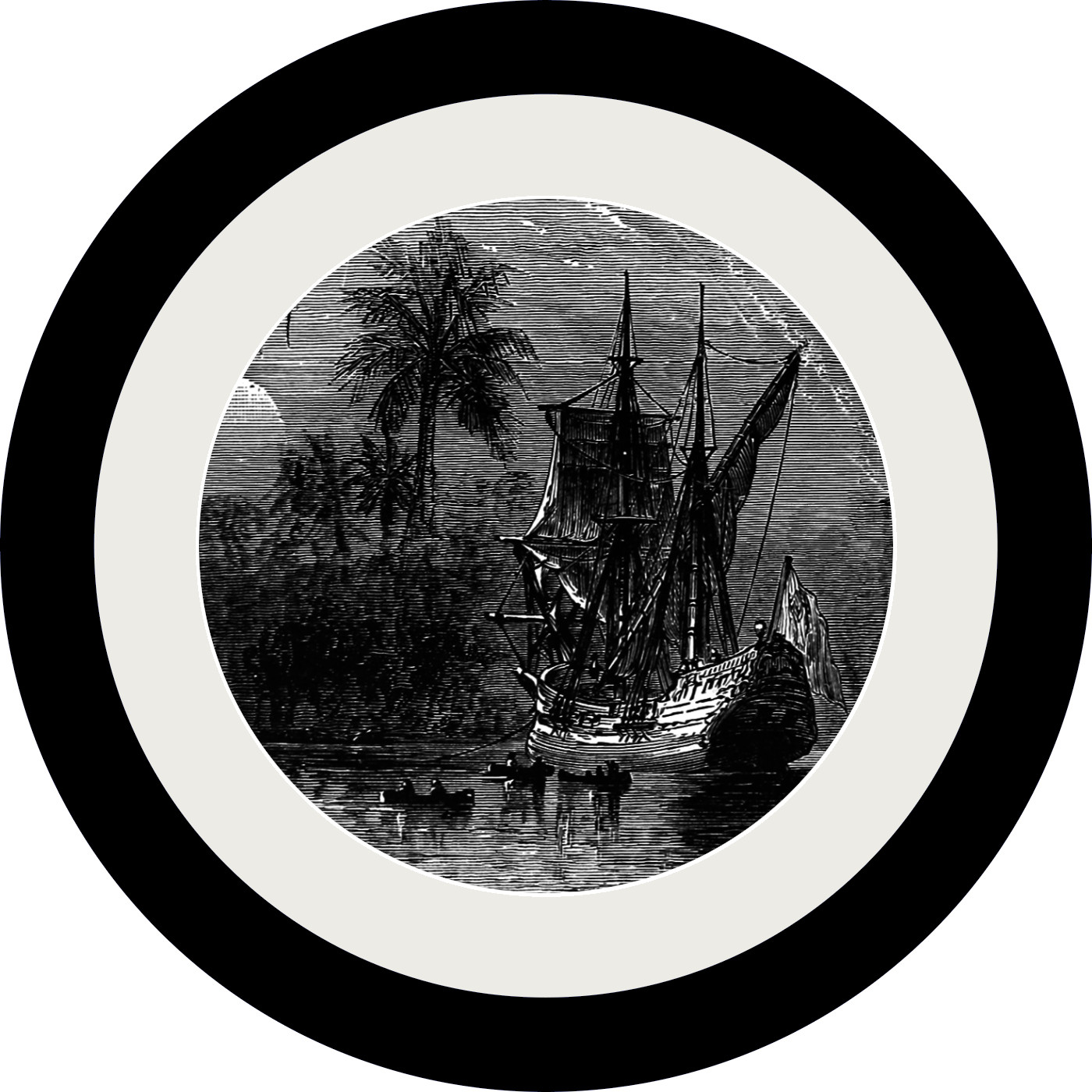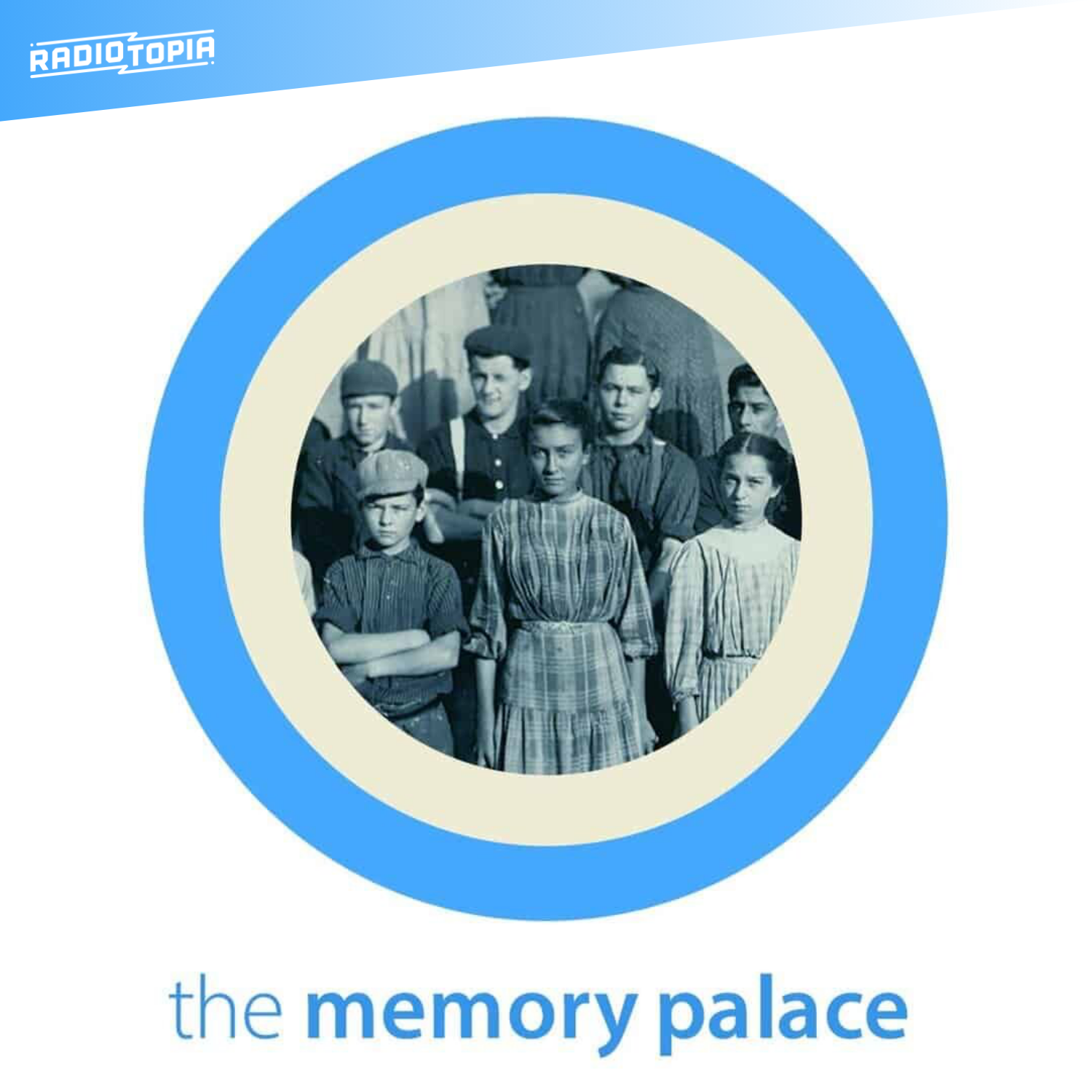Episode 203: The News from Thar
The Memory Palace is a proud member of Radiotopia from PRX.
Music
Mongali as played by the mighty Tabu Ley Rochereu
2nd Season by Takahiro Kido
Ferde Grofe’s Grand Canyon Suite: 5 Cloudburst as performed by the Detroit Symphony
Nero’s Nocturne by Chilly Gonzalez. Man, that guy is great. You should buy his music.
Opening Titles from Jeff Grace’s score to In the Valley of Violence
Morris Visits Dr. Pratt from John Barry’s score to The Wrong Box
Gift from Masakatsu Takagi’s score to The Boy and the Beast
Nurse Janet from Ludwig Goransson’s score to Everything, Everythin
Notes
- My favorite resources on frontier press stuff is by Barbara Cloud, The Coming of the Frontier Press, How the West was Really Won.
Learn about your ad choices: dovetail.prx.org/ad-choices
Press play and read along
Transcript
Speaker 1 Support for this podcast and the following message come from Sutter Health.
Speaker 1 Cancer diagnosis can be scary, which is why Sutter's compassionate team of oncologists, surgeons, and nurses work together as one dedicated team, providing personalized care for every patient.
Speaker 1 It's a whole cancer team on your team. Learn more at Sutterhealth.org.
Speaker 2 This episode of the Memory Palace is brought to you by our friends at Quince.
Speaker 2 Cooler temperatures are on the way, and as always, Quince is where I am turning for fall staples that actually last from cashmere to denim to boots.
Speaker 2
The quality holds up and the price still blows me away. And the holding up to me, that is really the thing.
Last year I got one of their super soft 100% Mongolian cashmere sweaters.
Speaker 2
This beautiful and classic brown. 60 bucks, though it looked like a proverbial million.
And I know that that sweater is just waiting for me. Waiting for those cooler temperatures.
Speaker 2
And when I take it out of the drawer, it is still going to look great. It is still going to feel great.
It's still going to be in fashion because Quince specializes in true classic staples.
Speaker 2 If you want denim that's durable, leather jackets with that clean classic look, you don't want the crazy markups that other retailers are trying to foist on you.
Speaker 2 And you want to know that that classic look, it's going to be in fashion for a long time to come. What you're going to want to wear forever is still going to be wearable for a long time to come.
Speaker 2
Look no further than Quince. Keep it classic and cool this fall with long-lasting staples from Quince.
Go to quince.com slash memory for free shipping on your order and 365-day returns.
Speaker 2 That's q-u-in-ce-e.com slash memory. Free shipping in 365-day returns, quince.com slash memory.
Speaker 2 This is the memory palace. I'm Nate de Mayo.
Speaker 2
There was gold in Themdar Hills. Literally.
And thus there was gold in Themdar Hills metaphorically. Thar was Colorado in 1859,
Speaker 2 where the mountainsides had rapidly been filling up with pick-wielding men eager to chip away the gold that the world had learned laid within just a year before.
Speaker 2 And with all those men newly arrived in a once-wild place, other kinds of golden opportunities abounded. They needed stores at which to buy those picks, and pans and whiskey.
Speaker 2 They needed houses, hammers with which to build them, lumber mills, saloons with those swinging doors. There were fortunes to be made that didn't require so much digging.
Speaker 2 And an enterprising man, and it is a man and a white one at that, almost exclusively,
Speaker 2 an enterprising man in the Colorado Rockies in 1859 needs a good idea, gumption,
Speaker 2 and he's got to get there fast. It was the gold rush, not the gold mosey.
Speaker 2
Jack Merrick was an enterprising man. Not cutthroat per se.
He was always described as either affable or jolly. You can almost hear it in the name.
Jack Merrick, pleased to to meet you. So nice guy.
Speaker 2
But enterprising. To wit.
He refurbished an old printing press that had been hauled up from the bottom of the Missouri River.
Speaker 2 It had previously been used by a Mormon newspaper, but had been tossed into the water by an anti-Mormon mob. The printing press was a pretty weak one, even before it was submerged.
Speaker 2 It could only print off one page at a time, but Jack Merrick, apparently affable, downright jolly, we're told, made the most of it, did so with a smile, we assume, and found his way to a town small enough for his his small printing press, becoming the writer, publisher, printer, and everything else for the paper of record of Elwood, Kansas.
Speaker 2 But then Merrick read in a bigger paper that there was gold discovered in the Colorado Rockies, and there would soon be small mining camps turning into larger ones, turning into small towns, and then who knows?
Speaker 2 Maybe he did.
Speaker 2 He knew that if he could get out there quick, it wouldn't matter if his waterlogged press wasn't impressive. Big things started with little things.
Speaker 2
He just needed to do his thing first. And so he took apart the printing press, loaded into the back of a wagon, hitched up his horse, and off he went.
There was gold in them thar hills.
Speaker 2 He got thar pretty quickly. There is no detailed account of the westward journey of Jack Merrick, jolly newspaper entrepreneur, so you are free to picture what you will.
Speaker 2 Swaying grasses, grazing elk, wide open spaces.
Speaker 2 A literal sunset that felt like a metaphorical sunrise. Copper and crimson and gold, surely, coloring the hills and his smiling face.
Speaker 2 In April of 1859 he rode into a makeshift mining community nestled along Cherry Creek, new shacks of fresh-cut lumber. He shook some hands, told people of his plans.
Speaker 2 Folks were excited to hear that a newspaper man had come to their camp.
Speaker 2 He found a place to store his press in his wagon, hopped back on his horse and rode up through the pines, notebook in his saddlebags and went to work, getting the lay of the land and meeting miners and finding the stories that needed telling in this new community made of émigrés, trying to find their own gold in their own way, in their new land.
Speaker 2 But while he was out reporting, he didn't hear the news. Some other men had arrived in town.
Speaker 2 The only one of them whose name you need to know is William Newton Byers. Like Merrick, he had been living in the middle of the country when he heard about the gold found in the Colorado Rockies.
Speaker 2 He too was enterprising, though not jolly, if these uniformly stern-faced photographs I'm scrolling through now are any indication.
Speaker 2 Anyway, the enterprising, if less of a fun hang Byers, was living and working in Omaha as a surveyor.
Speaker 2 And surely mining companies could use surveyors, but he had a different idea, which was the same one as Jack Merrick's. So he buys a printing press,
Speaker 2 a larger one, and enlists some friends to join him on his journey. And their wagons set off west, and 185 miles outside of Omaha, he stops for provisions and tells people about his plan.
Speaker 2 And they tell him that another fella had just passed through there with the same plan, just a few days before.
Speaker 2 So he takes off, saloon doors are left swinging, his reins snap and spurs dig in, and he bolts off west, because he knows the race is on. And we fast forward.
Speaker 2 Grass waves, animals graze, a sunset like a metaphorical sunrise plays upon upon an unsmiling and determined face.
Speaker 2 Byers arrives at the creekside camp while Merrick is riding back from his reporting trip up the mountain.
Speaker 2 Merrick is moseying down, thinking about the stories he will write and enjoying the crisp air filled with the smell of campfire and the sound of bird songs. Maybe the strains of a far-off fiddle.
Speaker 2 Or maybe not, maybe it was pouring and he's a little headache with the altitude, but he is still jolly.
Speaker 2 But he's also still enterprising. And so when he finds out that he is a step behind in a race that he did not know he had entered, he kicks into gear, determined to win.
Speaker 2 And over the next few days, the camp is abuzz with the battle between the two publishers. Each man is ensconced in makeshift offices on opposite sides of the creek.
Speaker 2 Miners are shuttling back and forth, forming their own ad hoc news service, updating each competitor on the other's progress, and spreading word through the camp.
Speaker 2
Sides are chosen, bets are placed, and the newspaper men are sweating. Merrick is sembling his press, but Byers is out in front.
His is more complicated, but he has a head start.
Speaker 2 Back on the other side of the creek, Merrick is frantically translating his notebooks into coherent stories, aligning his letters, and getting ready to print.
Speaker 2 His press can only print one page front and back, but he's only got to print the one page, and he's the winner. But he was up against it.
Speaker 2 We were to roll the story back, to win Merrick who is making his way across the plains.
Speaker 2 We could pause pause to find him talking to a stranger he met along the way, or taking in the scenery and gazing at the stars, dreaming about the stories he was going to write when he gets to Colorado.
Speaker 2 But when we do the same to Byron's journey, we find him night after night composing evergreen stories in the campfirelight.
Speaker 2 He wrote three of them, praising the profession of gold digging over farming, mapping out routes to the gold region, and promoting the many moral benefits of keeping the Sabbath.
Speaker 2 He wanted to be all set to roll when he got to camp.
Speaker 2 And on April 29th, 1859,
Speaker 2 Byers' paper came off the press 20 minutes before Merrick's.
Speaker 2 Merrick was beat.
Speaker 2 He quit the business on the spot.
Speaker 2 He sold his press and his type and his ink to Byers and set out west once more. This time to California to try his luck as a gold miner.
Speaker 2 His His newspaper, the Cherry Creek Pioneer, ceased operation after one issue.
Speaker 2 Byers' paper, the Rocky Mountain News, became the paper of record for Denver, Colorado for the next 150 years. Byers himself became a prominent figure in the early history of the Mile High City.
Speaker 2
As for Merrick, we don't know. History loses track of him after he and his horse disappear on their way out of town.
Where he wound up or what he did when he got there, we are not really sure.
Speaker 2 There was no newspaper there to tell his story.
Speaker 2 This episode of The Memory Palace is written and produced by me, Nate DeMayo, in December of 2022. The show gets research assistance from Eliza McGraw.
Speaker 2 It is a proud member of Radiotopia, a network of independently owned and operated podcasts from PRX, a not-for-profit public media company.
Speaker 2 If you would like to support what we do here directly, you can donate at radiotopia.fm.
Speaker 2 If you ever want to drop me a line, you can send me an email at nate at the memorypalace.us.
Speaker 2 And you can follow me currently, we'll see what the future holds, at thememory palace on Facebook and Twitter.
Speaker 2 Talk to you guys again.
Speaker 2 Radiotopia
Speaker 2 from PRX.





